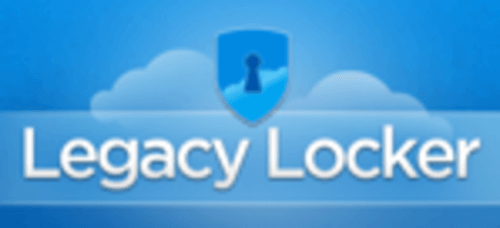These days it’s all about making your free web site “go viral” right? Maybe that was the all-too-common business plan in recent years – but many people were uncomfortable with that vision at a time of relative economic well-being. You can imagine how crazy such a plan sounds now.

Well-known PR pro Jeremy Toeman has started a business you’d hardly recognize as part of an era of YouTube clones, yet it is dependent on that very world of free, prolific, user generated content. Legacy Locker is a new service that stores your passwords to important services like email and social networks and delivers them to a caretaker in the event of your death. The company charges money and has a real-world market channel primed to resell its services. It’s something we think many web entrepreneurs could find inspiration in.
Now that “social media” has been around for a few years and has grown past its stereotypical demographic of teeny-boppers, families are starting to learn that there’s no easy solution for accessing online communication channels used by deceased loved ones. Email addresses for contacts that would like to be notified of a death, photos that family members would like to export from online accounts and balances of cash sitting unclaimed in online services like PayPal or eBay are just a few examples of the kinds of assets that are all too often lost upon a death. Toeman was inspired to start the company after being unable to access important online accounts held by his own grandmother, a prolific web user, after her passing.

It’s a clearly defined, widespread and very real need that Legacy Locker is aiming to fill. There’s also an apparent lack of anyone else in the market serving this need. How many other startups can you name that fit that description? There’s nothing wrong with other companies trying to compete in serving a market demand that is only beginning to emerge (that’s what most “web 2.0” startups are probably doing) but there’s really something to be said for Toeman’s approach, too.
For a $300 one time fee, or $30 yearly payments, Legacy Locker will store usernames and passwords to important accounts you hold around the web. The company doesn’t store media files, though it may in the future, but it does offer features like delivery of a last email to loved ones. Legacy Locker releases digital assets to predetermined caretakers once a report of a death has been received, an email to a customer hasn’t been returned and the company has been sent a death certificate to its physical office. From asset release to security, Toeman says his company is taking lessons from the life insurance and banking industries.
Sure there are workarounds to accomplish the same storage of information, but Toeman believes there will be a significant number of people who want this service provided by a company that specializes in it. We suspect he is right.
Legacy Locker’s go-to-market strategy is to reach out to will and estate planning professionals, who will bundle the company’s services into their offerings to their clients. Toeman says there are 25,000 estate planning professionals in the US serving 12.5 million people who have set up a will or estate. Given the cost of estate planning, an extra $300 (plus markup in some cases) to preserve family access to digital assets is not at all unreasonable.
At the same time, the company’s service and storage requirements are simple enough that Toeman says there is very little risk of Legacy Locker ever going out of business.
It sounds like a great combination to us: disruptive technology has created a widely felt new need, no one else is serving that need, the solution offered can be sold for a fair price and there’s an existing market channel waiting to carry it to customers.
Starting a business as a digital undertaker of sorts might seem macabre, but looked at as a business we think Legacy Locker is a sound idea. We wonder how many other real business ideas like this will spring from the chaotic world of free user generated content.










